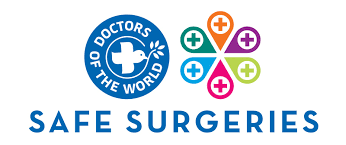Home Visits
If able, patients should come to the medical centre, where the doctors and nurses have a wide range of modern facilities for diagnosis and treatment.
You may only request a home visit if you are housebound or are too ill to visit the practice.
Where possible please telephone to request a visit before 10.30 am giving the receptionist full information for the reason for your visit.
You will be phoned back by a doctor. You may receive telephone advice for your condition by the doctor or the doctor may ask you to attend the Health Centre. If a visit is deemed necessary, it may not be your registered Doctor who will call.

Try to come to the surgery
The Doctor is not obliged to visit you at home unless you are housebound or unable to travel due to your condition. Please, where possible attend the practice so that full examinations are possible.
Home visits should be reserved for situations where it has been determined that a face-to-face consultation is necessary and:
- The patient is housebound
- The patient is in the later stages of a terminal illness
- The patient may be suffering from a medical condition which would be worsened by travelling
It should be remembered that each home visit takes approximately 30 minutes which includes a doctor's travelling and visiting time. For each home visit a doctor can see at least three patients in surgery.
Please think carefully before requesting a home visit and use this facility appropriately.
You can also be visited at home by a community nurse if you are housebound or unable to get to the surgery due to ill health.
Home Visiting Policy
For many years it has been clear that the vast majority of primary health care should be provided in the setting of a modern, well-equipped surgery in a well-lit, purpose-built environment with rapid access to affiliated services, such as nursing and a pharmacy.
The decision as to whether or not a visit is required should be based on the clinical condition of the patient and should be made by the assessing clinician.
The vast majority of patients are not harmed by car or taxi travel. Therefore, most feverish children, people with abdominal pain, diarrhoea and vomiting, upper respiratory tract infections, injuries and musculoskeletal problems, who are deemed to require a face-to-face consultation, are fit to be transported to the surgery for assessment.
There exists a grey area where there are no clear medical grounds to justify a home visit but where, for social reasons, patients or their carers feel they are unable to accept the invitation to attend the surgery. There is no requirement to provide a home visit in these circumstances, but the clinician may choose to offer a home visit in these cases as a pragmatic compromise.
Occasionally, if a patient clearly requires hospital admission following triage, this can be arranged without the need for a face-to-face contact following the agreement of the admitting hospital Doctor.
We use cookies to help provide you with the best possible online experience.
By using this site, you agree that we may store and access cookies on your device. Cookie policy.
Cookie settings.
Functional Cookies
Functional Cookies are enabled by default at all times so that we can save your preferences for cookie settings and ensure site works and delivers best experience.
3rd Party Cookies
This website uses Google Analytics to collect anonymous information such as the number of visitors to the site, and the most popular pages.
Keeping this cookie enabled helps us to improve our website.



